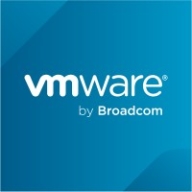

Microsoft Azure and VMware Tanzu compete in cloud solutions, with each offering unique strengths. Microsoft Azure holds an advantage in its comprehensive cloud services and global data center presence, while VMware Tanzu provides strong Kubernetes management within VMware's ecosystem.
Features: Microsoft Azure includes a global data center presence, support for various languages and frameworks, and integration for hybrid environments. It is known for its scalability, application deployment ease, and a robust toolset. VMware Tanzu excels in managing containerized applications, integrating with VMware's ecosystem for enhanced Kubernetes cluster management, and offering flexibility in multi-cloud environments.
Room for Improvement: Microsoft Azure could improve pricing transparency, reduce configuration complexity, and enhance support response times. Users also mention security and scalability issues in specific contexts. VMware Tanzu could benefit from better integration with non-VMware platforms, more intuitive hybrid cloud tools, and a refined pricing structure to support smaller organizations.
Ease of Deployment and Customer Service: Microsoft Azure is well-regarded in public and hybrid deployments, though initial setup can be complex, and customer service varies. VMware Tanzu is suited for private clouds and benefits from VMware integration, but support experiences vary, with longer response times for non-VMware environments.
Pricing and ROI: Microsoft Azure offers flexible pricing models, with concerns over predictability but a generally positive ROI due to scalability. VMware Tanzu's pricing is competitive for integrated features but perceived as expensive compared to other solutions like Red Hat's OpenShift, yet offers good ROI for organizations using VMware infrastructure.
| Product | Market Share (%) |
|---|---|
| Microsoft Azure | 15.7% |
| VMware Tanzu Platform | 3.5% |
| Other | 80.8% |


| Company Size | Count |
|---|---|
| Small Business | 140 |
| Midsize Enterprise | 53 |
| Large Enterprise | 150 |
| Company Size | Count |
|---|---|
| Small Business | 10 |
| Midsize Enterprise | 3 |
| Large Enterprise | 10 |
Microsoft Azure integrates services and offers flexibility, ensuring compatibility with diverse environments. Its scalability, security, and cost-efficient features enhance deployment and management, making it ideal for infrastructure services and application hosting.
Azure provides a comprehensive suite of tools for application deployment, virtual machine management, and data analytics. It allows seamless integration with Power BI and offers a user-friendly interface supported by detailed documentation and technical support. Though users appreciate its capabilities, they sometimes face challenges with costs, setup, and interface complexity, alongside integration and performance issues. Frequent updates and a learning curve are also noted, though Azure's cloud-based security and scalability remain critical for disaster recovery and business continuity.
What are Azure's key features?Microsoft Azure is widely implemented in industries like financial services, healthcare, and logistics for hosting enterprise applications and vital services. Companies utilize its capabilities for IoT applications, DevOps, and Kubernetes clusters, benefiting from its cloud migrations, data analytics, and active directory support.
VMware Tanzu Platform is designed for cloud-native development and management of Kubernetes, CI/CD processes, microservices, and containerized workloads. It supports deployments both on cloud and on-premises, providing centralized management via Mission Control.
VMware Tanzu Platform offers seamless integration with vSphere, ESX, and vSAN, supporting centralized cluster management and lifecycle management. The platform provides a GUI for monitoring CI/CD pipelines and network policies, enhancing multi-tenancy and Day 2 operations. Users can easily manage Kubernetes clusters, monitor applications, and integrate with tools such as GitHub, GitLab, Cloud Foundry, and Azure. It ensures compliance and security for service providers, financial institutions, and businesses.
What are the key features of VMware Tanzu Platform?
What benefits and ROI should users look for in VMware Tanzu Platform reviews?
Industries such as financial institutions, service providers, and businesses requiring rigorous compliance and security deploy VMware Tanzu Platform. These entities benefit from centralized management, streamlined DevOps processes, and integrated tools, enhancing their capabilities in cloud-native developments and containerized workloads.
We monitor all PaaS Clouds reviews to prevent fraudulent reviews and keep review quality high. We do not post reviews by company employees or direct competitors. We validate each review for authenticity via cross-reference with LinkedIn, and personal follow-up with the reviewer when necessary.